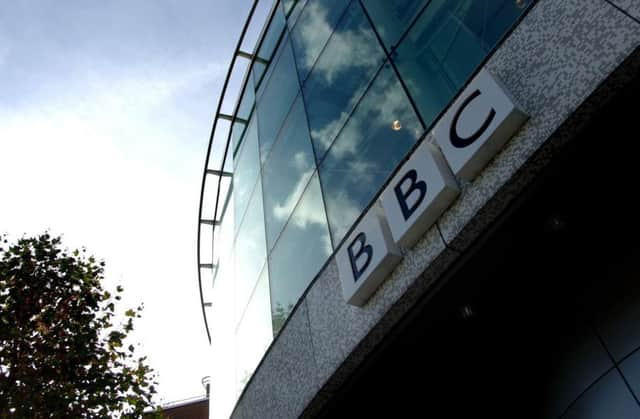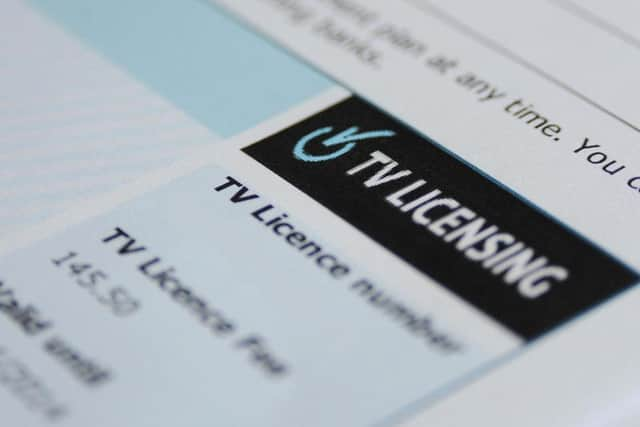Why the BBC needs to grow smaller to survive – David Behrens


That says two things about them – they were good in the first place and they’re better than anything being served up this time around.
From the very earliest days of television, there have been repeats. When the first regular transmissions began in 1936, even the opening programme had to be re-run so viewers with different types of sets could see it.
Advertisement
Hide AdAdvertisement
Hide AdI don’t mind this – lots of shows from the recent and distant past stand repeated viewing. Indeed, the new BBC and ITV streaming service known as Britbox is predicated on exactly that premise.


It became almost inevitable this week that the pattern would continue, especially at the BBC. The new Government appears set on decriminalising non-payment of the licence fee, a practice that currently saddles some of the poorest people in society with fines of up to £1,000 each.
The BBC’s disingenuous argument against doing this is that it might cost it £200m a year, which would mean fewer new programmes and more repeats. But it’s not as simple as that, because decriminalisation would not remove the obligation to buy a licence. It would simply change the way in which the system is enforced.
Advertisement
Hide AdAdvertisement
Hide AdNon-payment would be downgraded to a civil debt in the same way as not paying a fuel bill. The authorities would be able to pursue the matter through the county courts and send the bailiffs round if necessary but neither a fine nor a criminal record would accrue.
The practical consequences of this would be comical. BBC1 would have to stop showing The Sheriffs Are Coming because nearly all the cases would be about itself.
But it is hard to make an argument against decriminalisation. Even the Conservative peer Michael Grade, a former chairman of both the BBC and ITV, appeared resigned to it when interviewed this week. It was only the timing that rankled with him. He thought it would be interpreted as intimidation, so soon after an election.
It would certainly be a shot across the BBC’s bows but it would also serve as notice that the licence itself cannot be sustained for much longer.
Advertisement
Hide AdAdvertisement
Hide AdIn an age in which television – in the coming decade it will be most television – is viewed through means other than the public airwaves, a law that requires a licence to own a receiver is simply an anachronism. It’s as out of date as the dog licences we did away with 30-odd years ago.
But they were 37p not £154.50.
Neither is a licence the only way in which the BBC could be financed. Other parts of Europe are moving towards using general taxation to keep their public broadcasters on the air.
And with Britbox, the BBC itself is demonstrating that opt-in, opt-out subscriptions are also a possibility.
Advertisement
Hide AdAdvertisement
Hide AdNeither of these models is as bullet-proof as the licence fee but both are more attuned to the market conditions with which the rest of us have to live.
The guaranteed income the licence has afforded has allowed the BBC to become far bigger that it needs to be – and the last few weeks have demonstrated its size can work to its disadvantage.
Allegations of election bias flooded in from both the left and right and though they largely cancelled each other out they were inflamed by the corporation’s disproportionate presence and influence.
Advertisement
Hide AdAdvertisement
Hide AdLike most of us, I would like to have some of the BBC but not all of it. We’ll never agree on which parts we don’t want but the abundance of new-age TV services delivered over the internet has normalised the principle of paying only for what you use.
Those areas of current output not commercially viable but deemed valuable public services can be ringfenced by general taxes.
The BBC’s supporters have traditionally argued that to dilute it would be to lose it completely, which no one wants. But there are endless possible outcomes in between and a smaller and less-corpulent organisation would be more palatable.
The corporation will celebrate its centenary in two and a half years and the airwaves will be awash with triumphant repeats. But its challenge will be to demonstrate that it can look to the future, not just the past.